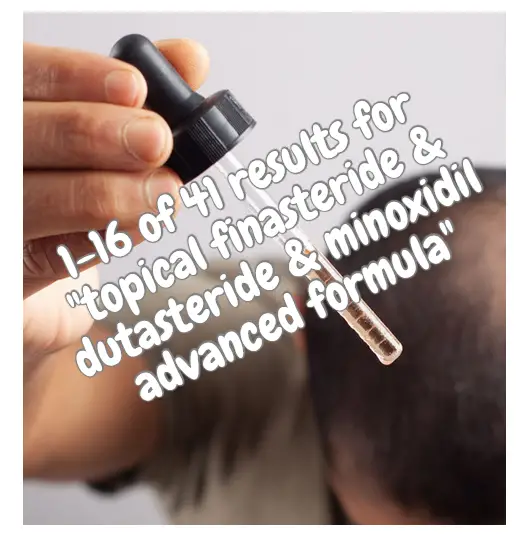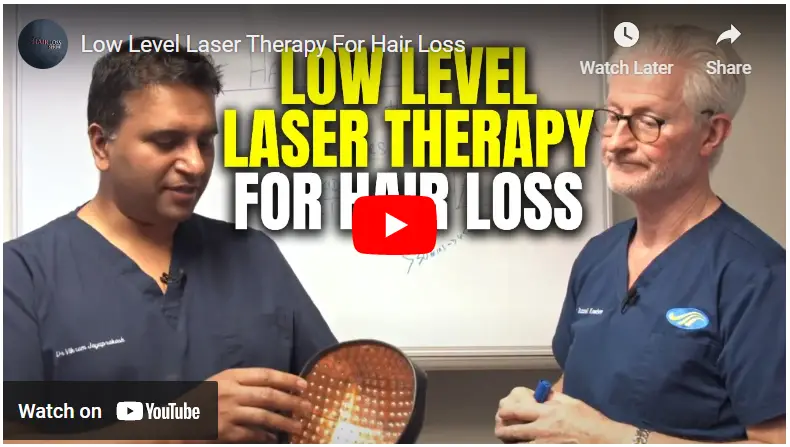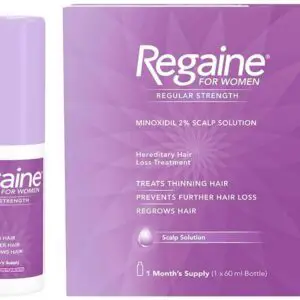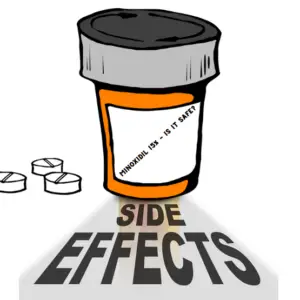What is Topical Dutasteride?
Topical Dutasteride is a cutting-edge formulation designed to combat hair loss directly at the source—your scalp. Unlike oral dutasteride, which circulates throughout the entire body, topical dutasteride is applied directly to the affected area. This localized treatment allows for a more targeted approach, reducing the risk of systemic side effects commonly associated with oral medications.
The distinction between topical and oral dutasteride is crucial for anyone considering hair loss treatments. Oral dutasteride, while effective, can lead to a range of systemic side effects, including sexual dysfunction and hormonal imbalances. On the other hand, topical dutasteride minimizes these risks by focusing the medication where it’s needed most—on your scalp.
If you’re torn between topical and oral solutions for hair loss, you’re not alone. Many find themselves in this dilemma, unsure of which route to take. Compare the pros and cons of topical dutasteride with oral treatments to make an informed decision tailored to your needs.
How Does Topical Dutasteride Work?
Understanding the mechanism of action of topical dutasteride is key to appreciating its efficacy in treating hair loss. This topical solution works by inhibiting the enzyme 5-alpha reductase, which is responsible for converting testosterone into dihydrotestosterone (DHT). Elevated levels of DHT are often linked to hair loss, particularly in cases of androgenetic alopecia. By blocking this conversion, topical dutasteride helps to reduce DHT levels in the scalp, thereby slowing down hair loss and promoting regrowth.
The impact of topical dutasteride on DHT levels is significant. Unlike oral formulations that affect DHT levels systemically, the topical version targets the scalp directly. This localized action allows for effective DHT reduction without the systemic side effects that can accompany oral medications.
If you’re curious about the real-world effectiveness of topical dutasteride, you’re in luck. Read reviews and testimonials from Happy Head users to get firsthand insights into how this topical solution could be the answer to your hair loss woes.
The Science Behind Topical Dutasteride
The efficacy of topical dutasteride is not a tale of mere chance, but a narrative intricately woven by science. At the heart of its prowess lies its ability to inhibit the actions of Type I and Type II 5-alpha-reductase enzymes. These enzymes are notorious for their role in converting testosterone into Dihydrotestosterone (DHT), a more potent androgen that often spells doom for hair follicles, especially in individuals genetically predisposed to hair loss. By staging a blockade against these enzymes, topical dutasteride significantly reduces the levels of scalp DHT, in some instances by up to 90%, according to studies2.
The meticulous design of topical dutasteride enables it to target the scalp’s environment without wreaking havoc systemically. Unlike its oral counterpart, which courses through the bloodstream and potentially bears systemic side effects, topical dutasteride’s localized application ensures a concentrated effort against scalp DHT. This localized approach not only amplifies its efficacy but dramatically diminishes the chances of systemic side effects, a balancing act that underscores its appeal.
Navigate through the intricacies of DHT inhibition in our detailed examination of topical dutasteride. Unveil the scientific endeavors that have birthed this potent formulation and venture into a realm where science meets hair regrowth. It’s not just about reclaiming your hair; it’s about understanding the journey. Dive deeper into the mechanism of action behind topical dutasteride and equip yourself with knowledge as robust as the solution itself.
Formula 82D: A Closer Look
Unveiling the enigmatic Formula 82D, often heralded as the quintessence of topical hair regrowth solutions. This bespoke concoction marries the potency of dutasteride 0.75% with the proven efficacy of minoxidil 5%, a union baptized with the moniker “Dutoxidil”. Diving into its composition unveils a meticulously crafted formula aimed at not only catalyzing hair regrowth but ensuring a scalp-friendly interaction2.
| Feature | Formula 82D | Other Topical Treatments |
|---|---|---|
| Efficacy | High | Varies |
| Side Effects | Minimal | Varies |
| User Feedback | Positive | Mixed |
The juxtaposition of Formula 82D with other topical hair loss treatments shines a light on its superior efficacy, minimized side effects, and overwhelmingly positive user feedback. It’s not merely a topical solution, but a manifestation of scientific ingenuity tailored for optimal hair regrowth.
Efficacy and Safety
The narrative of topical dutasteride isn’t spun on mere assumptions; it’s rooted in scientific scrutiny and real-world validations. A delve into clinical studies unveils a compelling testimony of its effectiveness, where topical dutasteride has showcased pronounced efficacy in bolstering hair regrowth and arresting hair loss2. The safety profile of topical dutasteride also echoes a comforting tune, with minimal side effects reported, especially when juxtaposed with its oral counterpart.
The tales of triumph resonate beyond the sterile ambiance of clinical settings, finding echoes in the testimonials of individuals who’ve reclaimed not just their hair, but a slice of their self-esteem. The journey from sparse to lush is laden with hope, a narrative beautifully crafted with each strand of hair reclaimed.
Embark on a deeper exploration of the safety and efficacy narrative surrounding topical dutasteride. Uncover the scientific validations and real-world testimonials that underscore its potency. Your journey towards a fuller mane could begin with a drop of topical dutasteride; a leap of faith backed by a robust scientific and real-world endorsement.
Benefits of Using Topical Dutasteride
When it comes to treating hair loss, topical dutasteride offers a host of benefits that set it apart from other available options. One of the most compelling advantages is its effectiveness in treating hair loss. Clinical studies have shown that topical dutasteride can significantly slow down the rate of hair loss and even promote new hair growth. This makes it a highly sought-after treatment for those struggling with thinning hair or receding hairlines.
Another noteworthy benefit is the reduced side effects compared to oral forms of dutasteride. Because the medication is applied directly to the scalp, it minimizes the risk of systemic side effects like hormonal imbalances and sexual dysfunction. This localized treatment allows users to enjoy the benefits of hair regrowth without the drawbacks that often come with oral medications.
If you’re weighing the pros and cons of various hair loss treatments, it’s essential to consider all your options. Compare the benefits and drawbacks of topical dutasteride with Minoxidil in foam or liquid form to determine which treatment aligns best with your needs and lifestyle.
Side Effects and Precautions
While topical dutasteride offers a range of benefits, it’s essential to be aware of potential side effects and precautions. Common side effects may include mild irritation or redness at the application site. These are generally short-lived and resolve on their own. However, more severe side effects, although rare, can include allergic reactions characterized by itching, swelling, or severe redness.
Certain individuals should exercise caution or avoid using topical dutasteride altogether. These include pregnant or nursing women, as the medication can be absorbed through the skin and may harm the fetus or nursing infant. Additionally, individuals with a history of allergic reactions to dutasteride or similar medications should consult their healthcare provider before starting treatment.
If you’re concerned about potential side effects or wondering if topical dutasteride is the right choice for you, read through reviews and experiences shared by users to gain a comprehensive understanding of what to expect.
How to Use Topical Dutasteride
Proper application and dosage are crucial for maximizing the benefits of topical dutasteride. When it comes to application methods, the solution is typically applied directly to the scalp, focusing on the areas where hair loss is most noticeable. It’s advisable to use the dropper or applicator that comes with the product for precise application. Make sure the scalp is clean and dry before applying the solution.
Dosage and frequency are other vital considerations. The standard dosage for topical dutasteride varies, but it’s generally recommended to apply it once or twice a week, depending on your healthcare provider’s advice. Overuse can lead to increased risk of side effects, so it’s essential to adhere to the recommended dosage.
If you’re unsure about the correct way to apply topical dutasteride or how often to use it, check out our comprehensive guide on the application and dosage of topical dutasteride.
Comparing Topical Dutasteride with Other Treatments
When it comes to hair loss treatments, topical dutasteride is often compared with other popular options like Minoxidil and Finasteride. Understanding the differences can help you make an informed decision. Topical dutasteride vs Minoxidil: While both are effective in promoting hair growth, topical dutasteride has the added benefit of reducing DHT levels directly at the scalp, offering a more targeted approach. Minoxidil, on the other hand, primarily works by widening blood vessels and improving blood flow to hair follicles.
Topical dutasteride vs Finasteride: Both are DHT inhibitors, but topical dutasteride is often preferred for its localized action and reduced systemic side effects. Finasteride, usually taken orally, can have more widespread side effects, including hormonal imbalances.
To help you weigh your options, here’s a comparison table:
| Treatment | Mechanism of Action | Side Effects | Frequency of Use |
|---|---|---|---|
| Topical Dutasteride | DHT Inhibition | Mild irritation | Once or twice a week |
| Minoxidil | Blood flow | Scalp irritation | Daily |
| Finasteride | DHT Inhibition | Hormonal imbalances | Daily |
If you’re still unsure which treatment is right for you, compare the pros and cons of topical dutasteride, Minoxidil, and Finasteride in greater detail.
Frequently Asked Questions
One of the most common questions people have is, “Does topical dutasteride work?“ The answer is yes, topical dutasteride has been shown to be effective in treating hair loss by inhibiting DHT directly at the scalp. Clinical studies and user testimonials both support its efficacy.
Another frequently asked question is about the side effects of topical dutasteride. As mentioned earlier, common side effects may include mild irritation or redness at the application site. More severe side effects are rare but can include allergic reactions. Always consult your healthcare provider for personalized advice.
Lastly, many wonder, “Where to buy topical dutasteride?“ It’s available through various online pharmacies and specialized hair loss treatment stores. However, it’s crucial to purchase from a reputable source to ensure product quality. For a list of trusted vendors, check out our comprehensive guide.
Conclusion and Takeaways
In summary, topical dutasteride offers a promising solution for those struggling with hair loss. Its mechanism of action focuses on inhibiting DHT at the scalp, making it a targeted treatment. Compared to other treatments like Minoxidil and Finasteride, it stands out for its localized action and reduced systemic side effects. However, it’s essential to consult a healthcare provider for personalized advice on dosage and application methods.
For those still on the fence about which hair loss treatment to choose, our comprehensive guide offers a detailed comparison to help you make an informed decision.
Additional Resources
For further reading and to deepen your understanding of topical dutasteride, consider the following external resources:
- AI Powered Bald Filter Online 2024: See Yourself with No Hair! - January 19, 2024
- Harklinikken Bad Reviews 2024: Analyzing Negative Feedbacks - January 18, 2024
- How to Get the Alex Eubank Hair | Step-By-Step Tutorial 2024 - January 18, 2024








Reviews
There are no reviews yet.